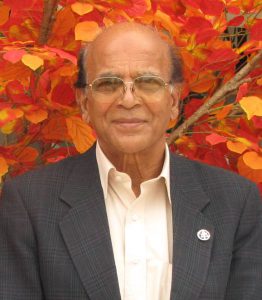IDRiM2021 Virtual Conference
The 11th International Conference of the International Society for the INTEGRATED DISASTER RISK MANAGEMENT
Online, 22-24 September 2021
About IDRiM2021
Reviewing the Effectiveness of Integrated Disaster Risk Management Initiatives: IDRiM Saga from 2001 to 2021
IDRiM2021 will celebrate 12 years since the official establishment of the International Society for Integrated Disaster Risk Management(IDRiM) in 2009, and 20 years since our founding members first discussed integrated disaster risk management at the first IIASA-DPRI Annual Forum on Integrated Disaster Risk Management in 2001. Since 2009, we have hosted IDRiM conferences annually in various countries around the world, showcasing research, implementation case studies, and addressing some of the most pressing problems in the field.
This year, we are planning to hold IDRiM2021 in an online format on 22-24 September 2021. Given the current world situation regarding the ongoing coronavirus pandemic, especially in Japan, we decided to hold the IDRiM2021 conference fully ONLINE.
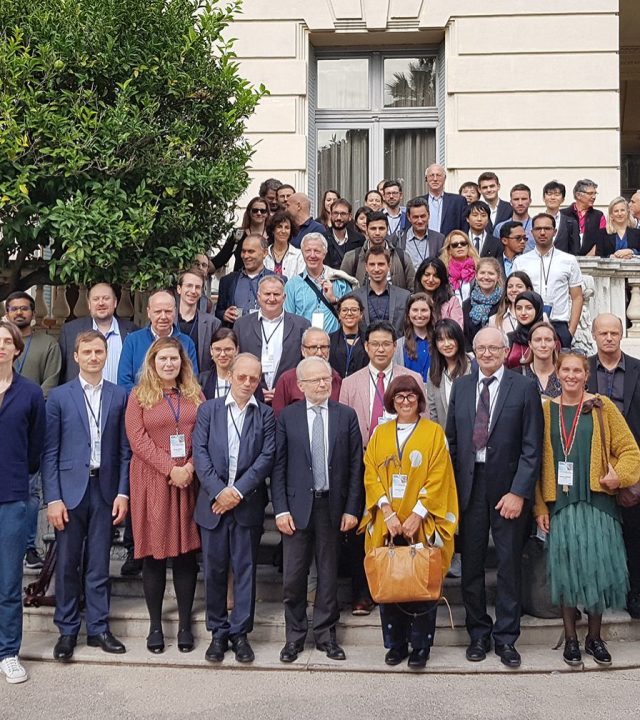
important Dates
Early Bird Registration will start soon.
Extended the deadline for the submission of Call for Abstracts submission.
Extended the deadline for Early Bird Registration.
The conference will be held fully in online format.
Call For Abstracts
IDRiM2021 takes on a special meaning as we look back at two decades of applied and theoretical research on IDRiM. Thus, we may ask, how has IDRiM contributed to disaster risk reduction(DRR)? Should IDRIM play a more prominent role in global platforms on DRR, development, and climate change adaptation? Can IDRiM promote implementation science through ideas such as the case-station field campuses (CASiFiCA) and other initiatives? Can IDRiM play a stronger role in bridging the gap between local, national, and international multi-stakeholder discussions on DRR? How “integrated” have our efforts been? Do we need to expand our views? How can advances from other disciplinary fields and initiatives that have not been traditionally included in the DRR discourse (e.g. sustainable futures, conscious businesses and new economics paradigms, green construction, life cycle assessment and planning, environmental protection including reducing consumption and waste, simple living, green cities, disaster history, anthropology, and cultural studies, and many more) contribute to DRR and vice versa?
Call For Papers - IDRiM Journal Special Issue
“Reviewing the Effectiveness of Integrated Disaster Risk Management Initiatives”
Since 2009, the IDRiM conference has been conducted annually in countries around the world to showcase research, discuss case studies, and address urgent problems within the field. In conjunction with the 2021 International Society for Integrated Disaster Risk Management (IDRiM) conference, IDRiM Journal invites submissions of research papers, technical notes, and thematic summaries addressing the conference theme mentined above. The guest editors encourage research paper, technical note, and thematic summary submissions from all conference presenters. In particular, we would like to encourage young scientists (graduate students, PhD candidates, and researchers who received their PhD within the past 2-3 years), as well as mid-career and senior researchers.
Keynote Speakers
*based on the order of appearances in the conferences programes
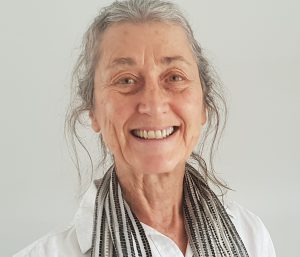
Joanne Linnerooth-Bayer
Dr Bayer is Program Director of the Risk and Resilience (RISK) Program at IIASA. She and her colleagues carry out applied policy research on climate-related catastrophic risk, including risk modeling, risk management and risk governance. She has published extensively on risk topics including the public understanding of risk, expert-engaged stakeholder processes, plural rationality in risk decisions and policy, and insurance for sharing catastrophic risks. The main interest is bridging between science and policy across societal risk issues. She serves on the boards of the Austrian Climate Research Program, the Munich Climate Insurance Initiative and (recently) the European Commission Environment Advisory Committee. She was the lead author of the IPCC Special Report on Managing the Risks of Extreme Events and Disasters to Advance Climate Change Adaptation, and review editor of the IPCC Fifth Assessment Report.
Norio Okada
Prof. Okada specializes in infrastructure planning and management, sustainable development, disaster risk governance and community-based participatory approach. His current research themes include adaptive design of human-based resilient and sustainable communities under Persistent Disruptive Stressors (PDSs) and strategic participatory approach for Building Back Better, even Before Disasters. He is Professor emeritus of Kyoto University where he also served as Director of the Disaster Prevention Research Institute (DPRI). He is the Founding President of the International Society for Integrated Disaster Risk Management (IDRiM Society), former President of the Japan Society for Natural Disaster Science, and he currently serves as adviser to the Institute of Disaster Area Revitalization, Regrowth and Governance at Kwansei Gakuin University. He has extensive international experiences including research scholar at IIASA, adjunct or visiting professor at University of Waterloo, BOKU in Vienna, University of Northumbria, and many more. Recently, he was invited to work at IASS as senior fellow.
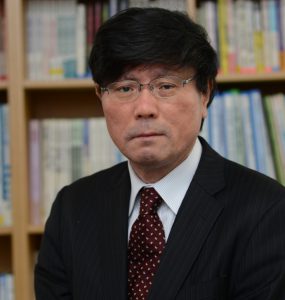
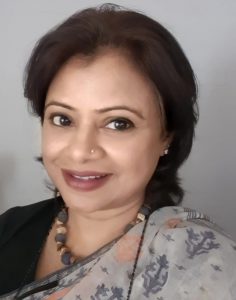
Qudsia Huda
Dr Huda is the Head of Disaster Risk Management and Resilience Unit in the Health Emergency Program of World Health Organization Headquarters. She is the WHO Focal Point for Disaster Risk Reduction and is responsible for the implementation of Sendai Framework targets for the health sector, health facilities safe from disasters and the whole of society health emergency and disaster risk management in countries. She held several executive leadership positions across multiple Regions of WHO and in countries to lead the emergency preparedness and humanitarian response actions. Some of those events include the Iran Earthquakes, South Asian Tsunami, Pakistan Flood, South Asian Earthquake, Afghanistan, Libya, Yemen, Sudan and Syria crisis, readiness, preparedness for Zika virus and Ebola virus diseases outbreaks. She has led several operational researches on emergencies and disasters, authored and co-authored number of books, chapters and articles on various aspects of disaster management, and multi-sectoral approaches of health actions to emergency management and disaster risks.
Stefan Hochrainer-Stigler
Dr Stigler is a senior research scholar with the Systemic Risk and Resilience (SYRR) research group at IIASA, and the leader of the Systemic Risk Analysis and Modeling theme. He is a member of the board of directors of the Integrated Disaster Risk Management (IDRiM) Society and the board of directors for the Global Alliance of Disaster Research Institutes (GADRI). His main research interests include risk management of systemic risk and extreme events such as natural disasters in developing countries, statistical (stochastic) modelling of rare and systemic events, extreme value theory, dependency of risks using copula approaches, econometrics, and multivariate analysis. He has published widely, including a number of books, book chapters and articles in major peer-reviewed journals such as Nature and Global Environmental Change. he is a regularly invited speaker at major scientific conferences and insurance meetings and has also facilitated and participated in high-level workshops in the Caribbean, Madagascar, Turkey, the Philippines, India and Mexico.
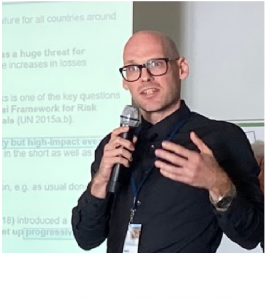
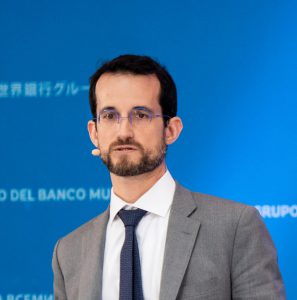
Stephane Hallegatte
Dr Hallegatte is the lead economist of the World Bank Climate Change Group. He is the author of dozens of articles published in international journals and of several books and World Bank reports on green growth, sustainable development, and the economics of natural disasters and climate change. His research interests include the economics of natural disasters and risk management, climate change adaptation, urban policy and economics, climate change mitigation, and green growth. He was the lead author of the 5th Assessment Report of the Intergovernmental Panel on Climate Change (IPCC). He is the author of dozens of articles published in international journals in multiple disciplines and of several books. He also led the writing team of the Stern-Stiglitz High-Level Commission on Carbon Prices. He was the team leader for the World Bank Group Climate Change Action Plan, a large internal coordination exercise to determine and explain how the Group will support countries in their implementation of the Paris Agreement. In 2018, he received the Burtoni Award for his work on the link between climate change adaptation and poverty reduction.
Ilan Noy
Dr Noy is the Chair in the Economics of Disasters and Climate Change at Victoria University of Wellington, New Zealand. His research and teaching focus on the economic aspects of natural hazards, disasters, and climate change, and other related topics in environmental, development, and international economics. He is also the founding Editor-in-Chief of Economics of Disasters and Climate Change, a journal published by SpringerNature. He previously worked at the University of Hawai’i, and has consulted for the World Bank, the Asian Development Bank, the Inter-American Development Bank, UNDRR, the International Monetary Fund, and ASEAN.
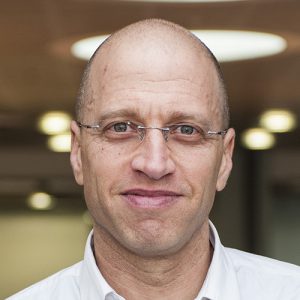
William Siembieda
Dr Siembieda is full professor of City and Regional Planning at California Polytechnic State University and founding director of the College of Architecture and Environmental Design Resilient Communities Research Institute. His policy interest is how to best integrate complex actions in the management of resilient and safe urban places. His professional hazard and risk reduction efforts are transnational. Examples include serving as a subject matter expert to the World Bank, the Asian Development Bank, the Chilean National Center for Integrated Management of Disaster Risk, and New Zealand’s Joint Center for Disaster Research. Plan work includes the prevention and preparedness plan for the federal district of Caracas (with the Japan International Cooperation Agency), the State of California Multi-Hazard Mitigation Plan, and the State of California Adaptation Planning Guide.
Hirokazu Tatano
Dr Tatano is a professor at Disaster Prevention Research Institute, Kyoto University. From September 2010, he is serving the role of Vice President of International Society of Integrated Disaster Risk Management (IDRiM Society). He is currently serving a secretary-general of Global Alliance of Disaster Research Institutes (GADRI) from 2015. He also served as a leader of the Disaster Risk Management Research Field, GCOE Program on Human Security Engineering for Asian Megacities. After 2011 Tohoku-Oki Earthquake and Tsunami (2011 Great East Japan Earthquake), he was appointed as a co-leader of a committee on integrated assessment and design of countermeasures for Tsunami disasters from Japan Association of Civil Engineers (JSCE). He is leading a research group in climate change adaptation strategies in the “TOUGO” program of MEXT. He has done pioneering research on economic consequence analysis and his major focus has been on economic resilience to natural disasters at the levels of the individual business, market, and regional economy. Another his research focus is methodologies for integrated disaster risk management and governance. Through these academic activities, he wish to contribute establishing “implementation science” as a key area of science for disaster risk reduction.
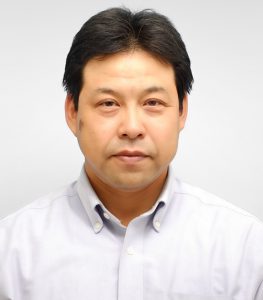
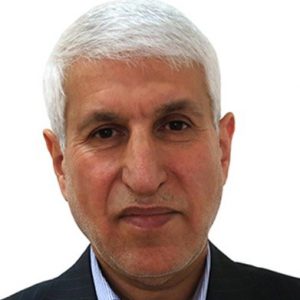
Mohsen Ghafory-Asthiany
Dr Ashtiany is the distinguished professor of earthquake engineering and risk management at International Institute of Earthquake Engineering and Seismology (IIEES), Associate member of Iran Academy of Science, Affiliate faculty of VA. Tech-GFURR, Chairman of BoD of SP Insurance Risk Management Institute (SPRMI), and Team Leader of WB Project on Dhaka Urban Resilience Project. He has worked with UNESCO, UNDRR, UN-HABITAT, UNESCAP, UNDP, WB-GFDRR, WHO, Global Alliance of Disaster Risk Institutes (GADRI), International Institute of Applied System Analysis (IIASA) and Inter-Academy on risk and resilience. He has been the founder of the IIEES in Iran in 1989 and was its president until 2007. He is the author of more than 350 papers, 5 books and 70 research reports in the field of random vibration, earthquake engineering, seismic hazard and risk analysis, risk management, urban resilience, and risk reduction policy development. He is founder and past President of Iranian Earthquake Engineering Association (IEEA), and a pioneer in Risk mitigation activities in Iran. He has served as member of Iran’s Natural disaster Prevention and Management Headquarter, Iran’s Risk Reduction Comm., Iran Scientific Research Council, National Building Code Council, etc.
Bijay Anand Misra
Dr Misra is Professor Emeritus, School of Planning and Architecture New Delhi. He is a consultant on Integrated Development, Urban Management and Disaster Risk Management. His most recent assignments are Advisor SAADRI, Indian Institute of Technology Roorkee, Advisor School of Climate and Disaster Management Centurion University of Technology Management, and World Bank Principal Advisor Urban Development, Government of Nepal. Internationally he has worked as advisor and senior consultant to UNDESA, International Expert to UNDP, UNCHS, and Ministry of Interior, Government of Thailand. He worked as Senior Advisor and Coordinator on the International Consortium on GCOE Asian Mega Cities Human Security Engineering Project on Disaster Risk Mitigation supported by Government of Japan. In India, he has worked as Team Leader in several national projects on integrated urban development, smart city development, and disaster risk governance for various corporations and governmental departments
